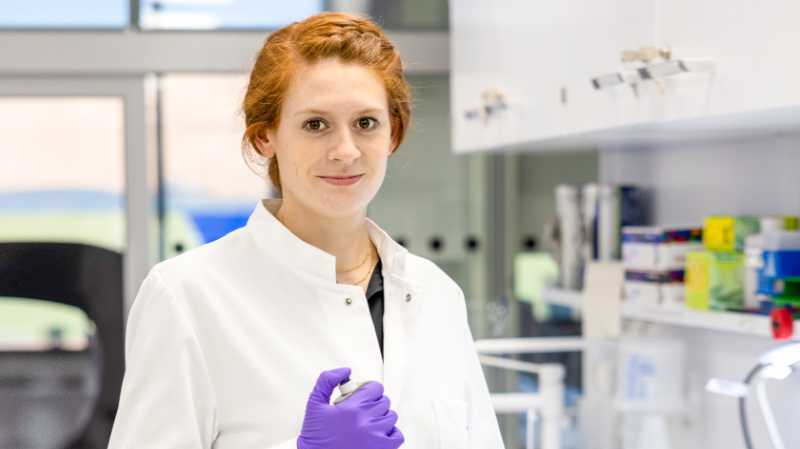Silvia Schäfer, DIGS-BB PhD student in the Mildred-Scheel Early Career Center group of Alexander Wurm and Marius Bill, is one of three young investigators who have received a prestigious stipend from the German José Carreras Leukaemia Foundation. The DIGS-BB team congratulates Silvia for this amazing achievement and the remarkable recognition of her work.
The stipends are awarded for projects to improve the therapy options for patients with leukaemia or related malignant blood diseases. Each stipend is endowed annually with 41,400 euros and up to 1,250 euros in travel expenses. The funding period covers up to three years. The research results are reviewed annually and assessed by the scientific advisory board and board of directors of the German José Carreras Leukaemia Foundation. This assessment is fundamental to whether the funding is approved and continued.
The foundation has been promoting scientific research, infrastructure, and social projects since 1995.
Q&A with Silvia
What motivated you to apply?
I applied for the stipend because the German José Carreras Leukemia Foundation is one of the most prestigious foundations in the field of hematologic malignancies in Germany. Being selected as one of the three scholars would mean that the project I am working on is of high interest in this highly competitive research field. Besides the financial support, it can push your academic career a lot and makes you more visible within the German hematology community.
What would you like to do during this 3 years?
My project is about investigating the role of long non-coding RNAs (lncRNAs) in acute myeloid leukemia. In detail, I am focusing on leukemia stem cells (LSCs), which are most likely responsible for the development of leukemia and for inducing relapse after therapy. In the next 3 years, I would like to identify lncRNAs that are especially associated with these LSCs and could be potentially used as new biomarkers for targeted therapy and therapy success.
What did you feel by receiving this award?
I am extremely happy and grateful about the decision of the German José Carreras Leukemia Foundation. Being selected as one of the scholars means that this project has a lot of potential, which increases my motivation even more to work on this exciting project in the next three years.
Parts of this text are sourced from the German Press Release by the José Carreras Leukaemia Foundation
